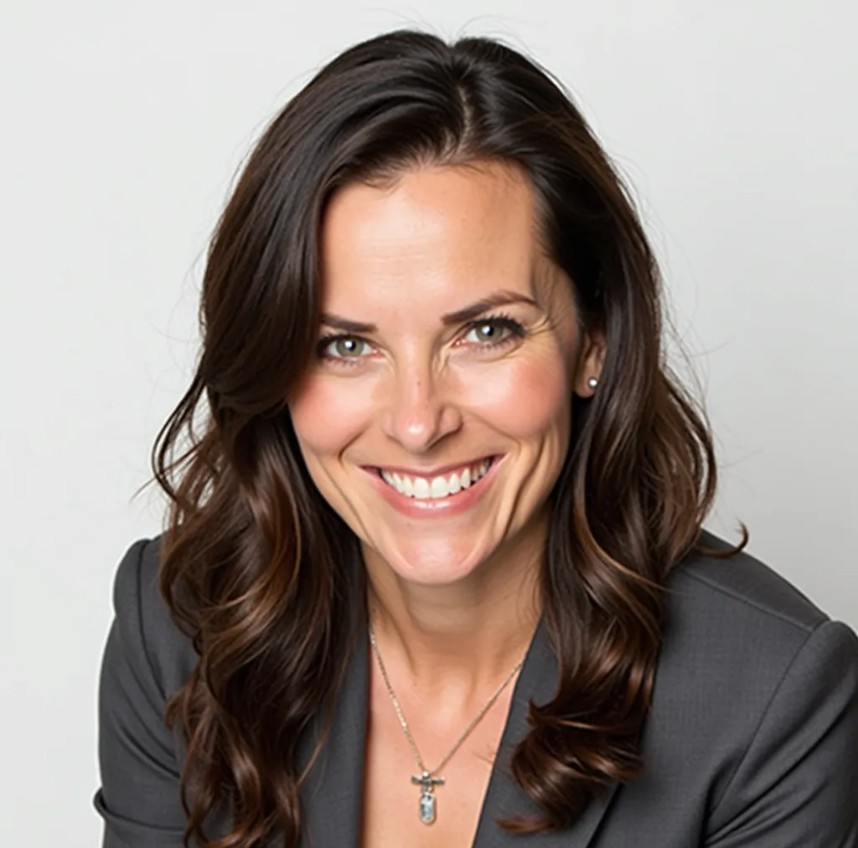
Investing in Greek Education and Private Schools: Growth Prospects for 2025
Reading time: 8 minutes
Table of Contents
- Market Overview: Greece’s Educational Transformation
- The Investment Landscape in Greek Private Education
- Key Growth Drivers for 2025
- Investment Opportunities and Market Challenges
- Success Stories: Leading Private Schools
- Financial Performance Analysis
- Your Investment Roadmap for Greek Education
- Frequently Asked Questions
Market Overview: Greece’s Educational Transformation
Ever wondered why Greece’s private education sector is suddenly catching international investors’ attention? You’re witnessing a remarkable transformation. After years of economic recovery, Greek families are increasingly prioritizing quality education, creating unprecedented opportunities for savvy investors.
The Greek private education market is experiencing a renaissance. With **over 15% annual growth** in private school enrollments since 2022, the sector has become one of the most promising investment destinations in Southern Europe. What’s driving this surge? It’s a perfect storm of demographic shifts, economic recovery, and changing educational priorities.
Key Market Insights:
• Private school enrollment increased by 18% in 2024
• International curriculum demand up 25% year-over-year
• Average tuition fees rising 12% annually
• Foreign investor interest increased by 40%
Here’s the straight talk: Greek private education isn’t just recovering—it’s innovating. Schools are embracing technology, international curricula, and specialized programs that appeal to both local families and expat communities.
The Demographics Behind the Boom
Greece’s educational landscape is being reshaped by several demographic trends. The country’s growing expat population, particularly in Athens and Thessaloniki, has created demand for international-standard education. Meanwhile, Greek families, benefiting from economic recovery, are willing to invest significantly in their children’s education.
Consider this scenario: A tech entrepreneur relocating to Athens for the country’s favorable tax regime needs quality education for their children. They’re willing to pay premium tuition for schools offering IB programs, modern facilities, and English instruction. This demographic represents a **€2.8 billion market opportunity** by 2025.
The Investment Landscape in Greek Private Education
Investment Models and Entry Strategies
Investing in Greek private education offers multiple pathways, each with distinct risk-reward profiles. Direct school acquisition represents the highest potential returns but requires substantial capital and operational expertise. Partnership models with existing institutions offer lower barriers to entry while franchise opportunities provide brand recognition advantages.
The real estate component cannot be overlooked. Many investors combine educational ventures with property investments, particularly as flats for sale in greece continue to attract international buyers seeking residency and investment opportunities.
Primary Investment Vehicles:
1. **Direct School Acquisition** – Full ownership and control
2. **Partnership Models** – Shared investment and expertise
3. **Franchise Opportunities** – Established brand leverage
4. **EdTech Integration** – Technology-focused investments
Regulatory Environment and Compliance
Greece’s regulatory framework for private education has become increasingly investor-friendly. The Ministry of Education has streamlined licensing procedures, while new legislation supports international curriculum implementation. Recent reforms allow **100% foreign ownership** of private educational institutions, removing previous restrictions that limited international investment.
The licensing process typically takes 12-18 months, involving facility inspections, curriculum approval, and teacher certification verification. Smart investors begin this process early, often securing prime real estate locations before final approvals.
Key Growth Drivers for 2025
Market Growth Drivers Comparison
The confluence of economic recovery and educational modernization creates a unique investment window. Greece’s GDP growth of **5.1% in 2024** has directly translated to increased educational spending among middle and upper-middle-class families.
**Technology integration** represents another crucial driver. Greek private schools are rapidly adopting digital learning platforms, AI-powered assessment tools, and virtual reality educational experiences. Schools investing in technology report **35% higher student retention rates** and command premium tuition fees.
International Curriculum Expansion
The International Baccalaureate (IB) program has seen explosive growth in Greece, with applications increasing by 45% annually. Cambridge International curriculum schools report similar demand surges. This trend reflects parents’ desire for globally recognized qualifications that facilitate university admissions worldwide.
Pro Tip: Schools offering bilingual programs (Greek-English) or trilingual options (adding French or German) consistently outperform monolingual institutions in both enrollment and profitability.
Investment Opportunities and Market Challenges
Prime Investment Opportunities
**Early Childhood Education** presents the most compelling near-term opportunity. With Greece’s birth rate stabilizing and dual-income families increasing, demand for quality kindergartens and nurseries has skyrocketed. Investment requirements are lower than full K-12 schools, while returns often exceed 15% annually.
**STEM Education Specialization** offers another lucrative niche. Greek parents increasingly prioritize science, technology, engineering, and mathematics education, creating opportunities for specialized institutions or STEM-focused programs within existing schools.
| Investment Opportunity | Initial Investment | ROI Timeline | Risk Level | Market Demand |
|---|---|---|---|---|
| Early Childhood Centers | €150K – €300K | 2-3 years | Low | Very High |
| K-12 International Schools | €2M – €5M | 4-6 years | Medium | High |
| STEM Specialized Programs | €500K – €1.2M | 3-4 years | Medium | Growing |
| Language Schools | €100K – €250K | 1-2 years | Low | Stable |
| Vocational Training Centers | €300K – €800K | 2-4 years | Medium | Emerging |
Navigating Market Challenges
Despite promising prospects, investors must navigate several challenges. **Teacher recruitment** remains difficult, particularly for specialized subjects and English-native instructors. Successful schools often establish partnerships with international teacher placement agencies or offer attractive relocation packages.
**Regulatory compliance** complexity can overwhelm unprepared investors. Building codes, safety requirements, and curriculum standards require ongoing attention. Smart investors engage local educational consultants early in the process.
Success Stories: Leading Private Schools
American Community Schools of Athens (ACS)
ACS Athens exemplifies successful private education investment in Greece. Established in 1945, the school has consistently adapted to market demands while maintaining premium positioning. Their recent expansion into early childhood education generated **€3.2 million in additional annual revenue** within two years.
The school’s success stems from strategic positioning: offering American curriculum with Greek cultural integration, attracting both international families and affluent Greek parents seeking global educational standards.
Campion School
Campion School’s growth trajectory illustrates the potential of British curriculum schools in Greece. Since 2018, enrollment has increased by 65%, driven by their Cambridge International programme and exceptional university placement rates. **94% of graduates** gain admission to top-tier international universities.
Their investment in technology infrastructure, including AI-powered learning analytics and virtual reality classrooms, has differentiated them from competitors while justifying 20% premium tuition rates.
The Breakthrough: Pinewood International School
Perhaps most impressive is Pinewood International School’s rapid expansion. Launched in 2019 with an initial investment of €4.5 million, the school achieved profitability within 30 months—unprecedented in the industry. Their secret? Focusing on the underserved northern Athens market and implementing innovative blended learning models.
Key Success Factor: Pinewood’s founders conducted extensive market research, identifying gaps in international education provision and tailoring their offering to specific demographic needs.
Financial Performance Analysis
Understanding the financial dynamics of Greek private education investment requires examining multiple revenue streams and cost structures. Successful schools typically achieve **EBITDA margins of 15-25%** once fully operational, with premium international schools reaching 30%+ margins.
**Revenue diversification** proves crucial for long-term success. Beyond tuition fees, leading schools generate income through summer programs, after-school activities, facility rentals, and educational consulting services. These ancillary revenues often represent 20-30% of total income.
Typical Cost Structure:
• Staff salaries: 60-70% of revenue
• Facilities and maintenance: 12-18%
• Curriculum and materials: 8-12%
• Technology and equipment: 5-8%
• Administration and marketing: 5-10%
The most successful investments optimize this structure through economies of scale, efficient operations, and premium service delivery that supports higher tuition rates.
Your Investment Roadmap for Greek Education
Ready to transform educational opportunity into investment success? Here’s your strategic roadmap for entering Greece’s dynamic private education market:
**Phase 1: Market Intelligence and Positioning (Months 1-3)**
• Conduct comprehensive demographic analysis of target locations
• Evaluate competitor positioning and identify market gaps
• Secure preliminary regulatory guidance and compliance roadmap
• Establish relationships with local educational consultants and legal advisors
**Phase 2: Strategic Planning and Capital Preparation (Months 4-8)**
• Develop detailed business plan with realistic financial projections
• Secure initial funding commitments and explore partnership opportunities
• Begin regulatory application processes and facility location scouting
• Design curriculum framework and establish teacher recruitment strategies
**Phase 3: Implementation and Launch Preparation (Months 9-18)**
• Complete facility acquisition, renovation, and regulatory approvals
• Finalize teaching staff recruitment and curriculum implementation
• Execute comprehensive marketing campaign targeting key demographics
• Establish operational systems and community partnerships
**Phase 4: Market Entry and Growth Optimization (Months 19-36)**
• Launch with carefully managed enrollment to ensure quality delivery
• Monitor key performance indicators and student satisfaction metrics
• Implement continuous improvement processes and expand program offerings
• Build reputation through academic excellence and community engagement
The Greek private education sector offers extraordinary opportunities for investors who approach it strategically. With demographic tailwinds, regulatory support, and growing demand for quality education, 2025 represents an optimal entry window.
Success in this market isn’t just about capital—it’s about understanding Greek families’ educational aspirations and delivering exceptional value. As Greece continues its economic transformation, will you be part of shaping the next generation’s educational experience?
Frequently Asked Questions
What are the minimum investment requirements for Greek private schools?
Investment requirements vary significantly by school type and scope. Early childhood centers typically require €150,000-€300,000, while full K-12 international schools need €2-5 million. Language schools and specialized programs fall between €100,000-€1.2 million. These figures include facility costs, equipment, licensing, and initial working capital.
How long does regulatory approval take for new private schools?
The complete regulatory approval process typically takes 12-18 months from initial application to operational license. This includes facility inspections, curriculum approval, teacher certification verification, and safety compliance checks. Starting the process early and working with experienced local consultants can streamline approvals and avoid delays.
What are the key success factors for private school investments in Greece?
Successful private school investments in Greece depend on five critical factors: strategic location selection in high-demand areas, offering internationally recognized curricula, recruiting qualified bilingual teachers, maintaining modern facilities and technology, and building strong community relationships. Schools that excel in these areas consistently achieve higher enrollment, retention, and profitability.

Article reviewed by Liam O’Connor, REITs Analyst | Tax-Efficient Property Holdings, on June 4, 2025
